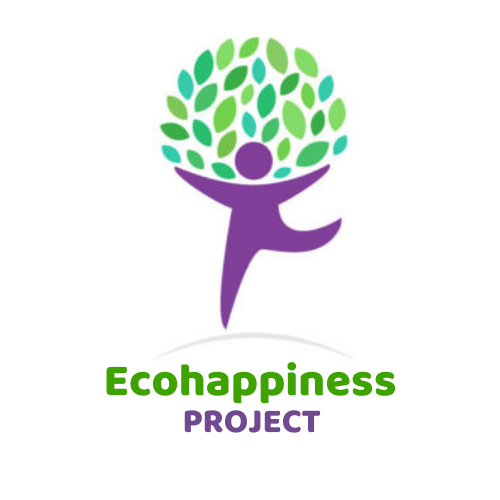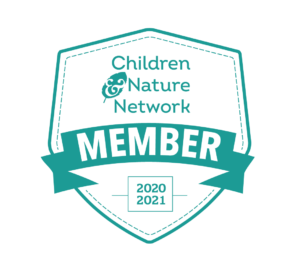I’ll never forget the first time my daughter saw Fourth of July fireworks. She was laughing, yelling out joyously at each new decoration in the sky, and even shaking in her chair. Witnessing her remarkable response of true happiness allowed me to view that moment through her young eyes—to turn something ordinary into something extraordinary.
We sometimes have special moments in life that are so profound we don’t even know how to describe them. Maybe you just spotted a rainbow, watched a video about our expansive universe, or witnessed the birth of your child. The emotion you feel is hard to grasp—an overwhelming mix of wonder, joy, and sometimes even fear. These moments are so exhilarating that we get goosebumps on our arms, feel tingling up and down our spine, tears flood our eyes, and our jaw drops.
This is called awe. Awe is an emotion that has a powerful effect on our body and mind. It is a feeling very hard to put into words. David Delgado, a visual strategist at NASA’s Jet Propulsion Laboratory (JPL) and co-founder of the Museum of Awe who spoke at the Greater Good Science Center’s recent Art and Science of Awe conference, describes awe as an instant when you can’t quite grasp something. “It feels like magic, amazement, mystery, reverence. It’s the moment when we realize it’s a gift and privilege to be alive.”
How We Feel Awe
Awe has been addressed throughout history by the amazing works of great writers and scientists like Charles Darwin, Albert Einstein, and John Muir. However, researchers have only recently begun to study how awe impacts our well-being. In a key 2003 paper, “Approaching Awe, A Moral, Spiritual And Aesthetic Emotion,” psychologists Dacher Keltner of the University of California, Berkeley (now the director of the Greater Good Science Center) and Jonathan Haidt of New York University presented how awe works and the effects it has on us. They found that awe consists of two core qualities:
- Perceived vastness—something we think to be greater than ourselves in number, scope, or complexity.
- It challenges or alters our understanding of the world.
Awe allows us to transcend the ordinary, tests our concept of time and scale, gives us the sense of being small in a grand universe, and helps us to truly be in the moment.
Awe can be triggered by different things for different people. It can result from profound beauty; spending time in nature; feeling connected to others; remarkable human accomplishments; scientific discoveries; or great works of architecture, art, and music. According to award-winning cinematographer Louie Schwartzberg who created the Gratitude Revealed film series, “It doesn’t matter what pathway it takes, or what your belief system is, or what the story is. We just want to feel it. What is important is…to be moved.”
How Awe Transforms Us
On average, we feel that something is awe inspiring only about two and a half times per week, Dacher Keltner explains. As our culture becomes more self-focused and over-worked, awe provides an amazing tool to instill a deeper sense of worldliness, kindness, and peace in our children. Recent research shows that awe can make us happier and healthier in a number of significant ways.
Broadens Social Connection
Awe changes our perspective of the world. We feel smaller and as though we are in the presence of something greater than ourselves. A study at the University of California, Berkeley concluded that awe makes us lose our awareness of “self” and feel more connected to the world around us. This helps get rid of dangerous “us versus them” thinking. Additionally, when we witness a remarkable moment, we want to share it with other people, causing us to bond with family, friends, and even strangers.
Stimulates Curiosity
When we observe something awesome—like images of Earth from space, a fascinating science experiment, or a talented athlete—we want to learn more about how it is all possible. Curiosity is so critical to children’s growth and success. Even though their constant questions may be trying at times, it is ultimately what we want them to do so they are always craving new knowledge. What’s even more incredible is that people who are curious tend to get along better with others.
Expands Creativity
Awe inspires us to be more creative because we begin to view the world in a broader sense. This expansive thinking helps us consider new perspectives and see beyond our present situation. In a 2012 study from Tel Aviv University, one group of children was asked to look at a series of photos, starting with basic everyday objects and then shifting to vast or far away things like the Milky Way galaxy. The other group was shown the same images but in the opposite order. The children who saw the objects from small to expansive performed significantly better on creativity tests.
Leads To Kindness and Generosity
Paul Piff, assistant professor of psychology and social behavior at University of California, Irvine, has found that “awe boosts a person’s generosity, willingness to help others, willingness to behave in ethical ways, to take on needs of others, and de-prioritize their own needs. Awe connects us to things larger than ourselves and motivates us to care for others and the collective good.” His experiments prove that when people experience a moment of awe, they tend to be more generous. He had participants first either look up into tall, beautiful trees or at a large building. They then came across a person who needed assistance. Those in the tree group were more apt to help to the person in need.
Get inspired–learn how you can find the best volunteer projects for your family.
Changes Our Perception Of Time
In our hectic 24/7 lifestyle, don’t you wish we had more time? Awe has been shown to give us the illusion that we do have more time and no longer need to rush. A 2012 Stanford University study published by Psychological Science found that participants who watched awe-inspiring videos featuring whales, waterfalls, and other nature scenes were more likely to report feeling like they had more time.
Guides Us To Find Our Purpose In Life
Positive psychology researchers have discovered that people who have a clear purpose in life experience less pain and anxiety and are less depressed. By being connected to something larger than ourselves through awe, we are more likely to be inspired and motivated to face new challenges and reach our goals. Research shows that children who grow up with a sense of purpose are typically happier, have a more successful career, and have stronger relationships later in life.
Makes Us Grateful
Awe gives us a sense of hope and the ability to see the bigger picture. It teaches us that there might be something magical in everyday life that we can be grateful for. Louie Schwartzberg, creator of the Gratitude Revealed video series, says that “Awe inspires us to open our hearts and minds to engender gratitude.”
Improves Our Immune System
Researchers at Berkeley have discovered that awe reduces the level of pro-inflammatory proteins (called cytokines) that cause our immune system to work harder. This is important because high levels of cytokines cause illness. “That awe, wonder and beauty promote healthier levels of cytokines suggests that the things we do to experience these emotions…has a direct influence upon health and life expectancy,” suggested Dacher Keltner, co-author of the study.
Reduces Anxiety and Depression
Feelings of awe boost our mood. Our nervous system reacts in the opposite way to awe than anxiety. Instead of the “fight or flight” response kicking in, awe keeps us still and relaxed, benefiting both our body and mind. Additionally, elevated cytokines have been linked to depression. As discussed earlier, awe reduces these cytokine proteins, therefore, reducing depression.
When was the last time you saw your kids having an awe-inspiring moment?






Love love love this post! It’s amazing to read about just how many benefits there are to having awe-inducing experiences.
I both experienced and witnessed this last week, while on vacation in California with my boyfriend and 9 month old daughter. It was so good for us in so many ways to get away and experience things we’d never seen before (lan airplane ride, trip to the beach, my first 5 star rating experience, etc…). All of that refreshed and renewed me so much and I’ve discovered the importance of introducing my daughter to new things as well.
Such great points! When we and our children see moments that fill us with awe, it shows us that there is good in the world even if there are still some bad things.
I was reading this article with a wow moment. I had no idea that something like a wow moment can improve and change someone’s life!